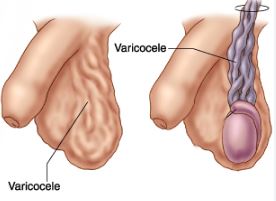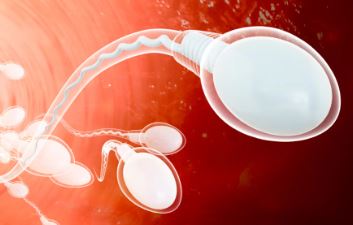Varicocele is a medical condition that, although not widely known outside of medical circles, has a significant impact on male reproductive health. This disorder, which affects approximately 15% of the male population, can be a silent obstacle on the path to parenthood. But what exactly is varicocele and what is its relationship with fertility? Join me on this informative journey to better understand this condition and the treatment options available.
What is varicocele?
Varicocele occurs when the veins inside the scrotum (the bag of skin that houses the testicles) dilate due to malfunctioning venous valves. This situation is similar to the varicose veins that some people develop in their legs. Although varicocele can occur on both sides of the scrotum, it is more common on the left side.

Causes and symptoms
The exact cause of varicocele remains a topic of research, although a failure of the venous valves within the scrotum is thought to play a crucial role. These valves should allow blood flow to the heart, but their malfunction causes an accumulation of blood and, consequently, a dilation of the veins.
In many cases, a varicocele has no symptoms and is discovered during a physical examination for other reasons. However, some men may experience pain, swelling, or a heavy feeling in the scrotum. Visually, it may appear as a lump or enlargement of one of the testicular veins.
Impact on fertility
Varicocele can affect male fertility in several ways. Increased temperature in the scrotum, resulting from the accumulation of blood, can damage sperm or reduce their production. Additionally, it has been associated with a decrease in sperm quality, including its motility and shape.
Diagnosis
The diagnosis of varicocele is usually made through a physical examination. In some cases, a scrotal ultrasound may be required to confirm the presence of a varicocele, especially if the physical examination is inconclusive.

Treatments available
Treatment of varicocele is mainly considered when there is pain, testicular atrophy or fertility problems. Options include:
- Embolization: A minimally invasive procedure where a catheter is inserted into the vein through the groin to block blood flow to the varicocele.
- Surgery: Surgical repair, known as varicocelectomy, involves ligating dilated veins to redirect blood flow to healthy veins.
Hopes for fertility
Fortunately, successful treatment of varicocele has been shown to improve sperm parameters and, in some cases, male fertility. For men facing fertility challenges related to varicocele, medical intervention offers a glimmer of hope to overcome these obstacles.
Varicocele is a reminder that fertility is not just a female concern. Recognizing and treating this condition can be a vital step toward realizing the dream of starting a family. If you suspect that you or your partner could be affected by this condition, it is crucial to seek guidance from a fertility specialist.
Understanding and treating varicocele is just one example of how modern reproductive medicine works tirelessly to help people overcome challenges on their path to parenthood. In the world of reproductive health, each advance brings us one step closer to making the dreams of future parents come true.

